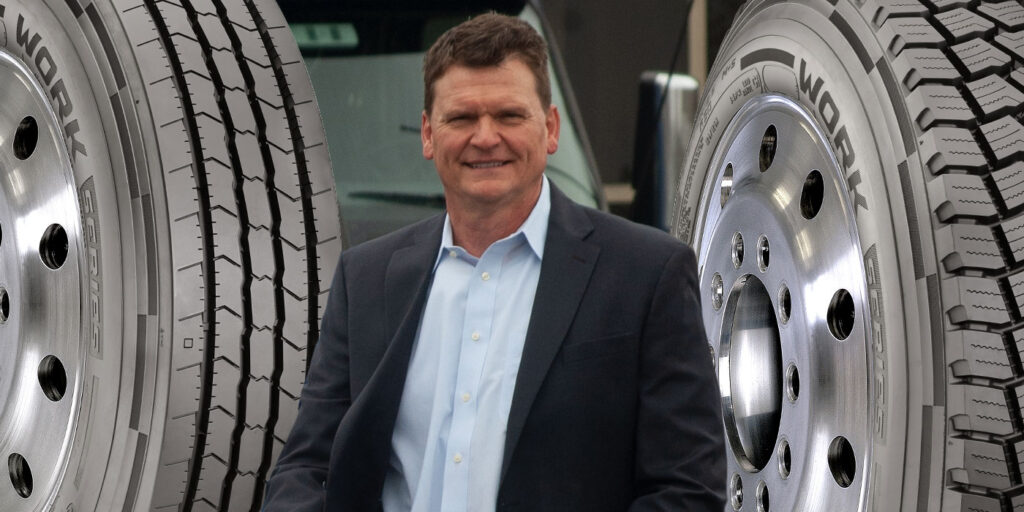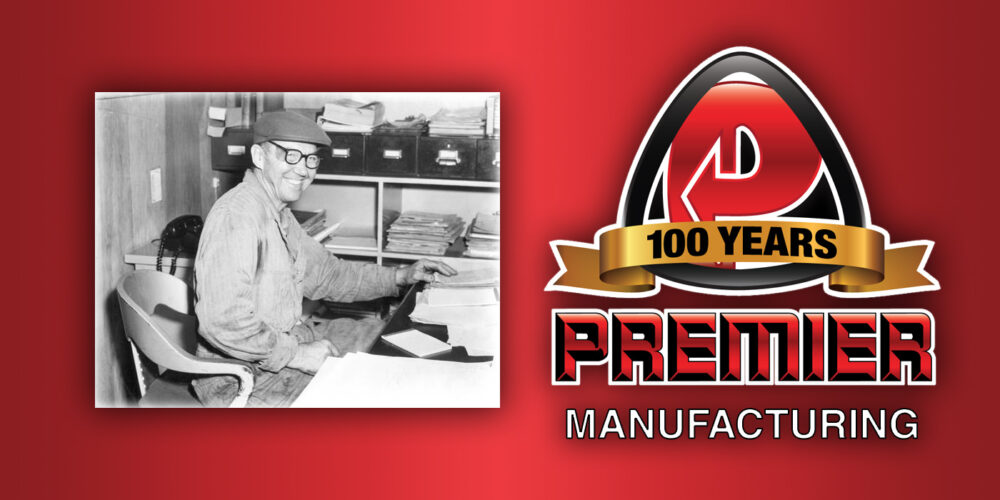Raise your hand if you saw the Goodyear acquisition of Cooper Tire coming? It was just one of the latest surprising industry announcements in a year full of surprises. A lot has changed since we talked with Gary Schroeder, executive director of Cooper’s global truck and bus tire business, for our executive interview in February of last year. (It feels like 10 years ago, actually.) At that point, Cooper Tire and Rubber Co. was poised for growth in the trucking industry, with new products coming down the line. I caught up with Schroeder for his take on the Goodyear announcement, an update on new products and what the new normal means for Cooper today and going forward.
Fleet Equipment (FE): So wow—the Goodyear news definitely took those of us on the outside by surprise. Can you share any details for what this deal means to Cooper and how it shapes the road ahead?
Schroeder: We are excited about the opportunity to be part of a bigger, stronger combined organization—Goodyear and Cooper—that represents the best of what both of our organizations have to offer. Our companies have a lot in common… we share similar cultures, values and a commitment to quality and customer service.
FE: Obligatory business question out of the way, FE published the Cooper executive interview story in February last year when the goal was to expand Cooper’s reach. How did you have to adapt that plan to our new normal? How has your relationship with customers in terms of selling and servicing tires changed over the past year?
Schroeder: Last year was a year for all years. It was good when it came to sales volume, but it was extremely difficult at the same time. We really made inroads with our Cooper signature line of tires, but when COVID hit, it stalled out much of our efforts with in-person meeting with fleets. Still, our team did a tremendous job working with our customers and monitoring test programs from afar.
One thing we found was a shift in thinking when it came to tires. Fleets became more focused on cost control and getting the most value for their dollar. That meant more fleets were open to change and trial, and, that played into what we offer with Cooper tires—our LCO, or low cost of ownership, proposition. When we went to market with our Cooper line, we wanted to shift the paradigm in thinking, which was often “I want the tire with longest miles to removal,” to one that looks at three other important areas of a tire—the fuel efficiency of the tire, the quality of the casing, and the purchase price. Those four elements—and quantifying the costs/benefit of each—give the true cost of the tire. For us, we see that as our advantage.
FE: The last mile segment grew wildly last year. What tire-related trends do you see there? How do those commercial customers compare with the typical regional fleet business we typically think of?
Schroeder: Yes it did, as consumers purchased more and more goods through the internet. We don’t see the trend slowing down much. With that came a big shift in final-mile deliveries. Studies show that almost half of the supply chain cost to get a good from a manufacturer to your home is in that final mile. So, companies in this segment are going to be looking very, very hard at how they reduce the cost of that final-mile delivery and tires are a big part of the operational costs.
Trucks need multiple sets a year since final mile routes are so difficult—starting, stopping, turning, impacts and running into curbs take a toll. Plus, traction is very important. The demand for quality 19.5 tire size is increasing, and fleets are looking for tires that will stand up to the abuse. We launched the Cooper Work Series ASA and ASD 19.5s last year that addresses this market, and so it was an opportune time for us in the market.
FE: In the over-the-road long-haul segments, how, if at all, did you see tire purchasing or service trends shift last year? Have any of those behaviors continued into 2021?
Schroeder: Early on in 2020 many fleets bought ahead on their replacement tire purchases to hedge against possible tire shortages due to tire factories reducing or halting production during COVID. The pre-buying activity has dissipated as industry tire supply begins to recover.
FE: Sustainability is a growing conversation in 2021—building off the electric truck buzz and boosting talk of hydrogen, natural gas and other “alternative” fuels. What’s the tire role in sustainability? How might electric vehicle tire usage differ compared to diesel trucks?
Schroeder: The biggest impact a commercial tire can have on the environment is through its retreadability. A retreaded tire uses about 15 fewer gallons of oil to produce a tire for service. So, creating a casing that can have multiple retreads is not only good for the fleet in reducing costs, it’s also better for the environment.
As for how tires will differ for electric trucks versus diesel, the main thing is in initial torque. Electric vehicles can start quicker, so that puts added torque on the tire tread. Tread pattern designs and compounds formulations can be used to address the change in torque.
FE: There’s been industry talk of new tire technology, from air-less tires to trackable connected tires. What tire tech do you see coming down the line in the next year or so?
Schroeder: That’s a good question. While many types of technology are being developed in this space, there doesn’t appear to be one dominant thought on how the technology and timing play out. There are clear benefits of having tires that can communicate with the vehicle from a safety, maintenance and tire program cost perspective. However, at this point a scalable, widely adopted system hasn’t surfaced. That being said, it’s a matter of when, not if, these systems will be widely used.














